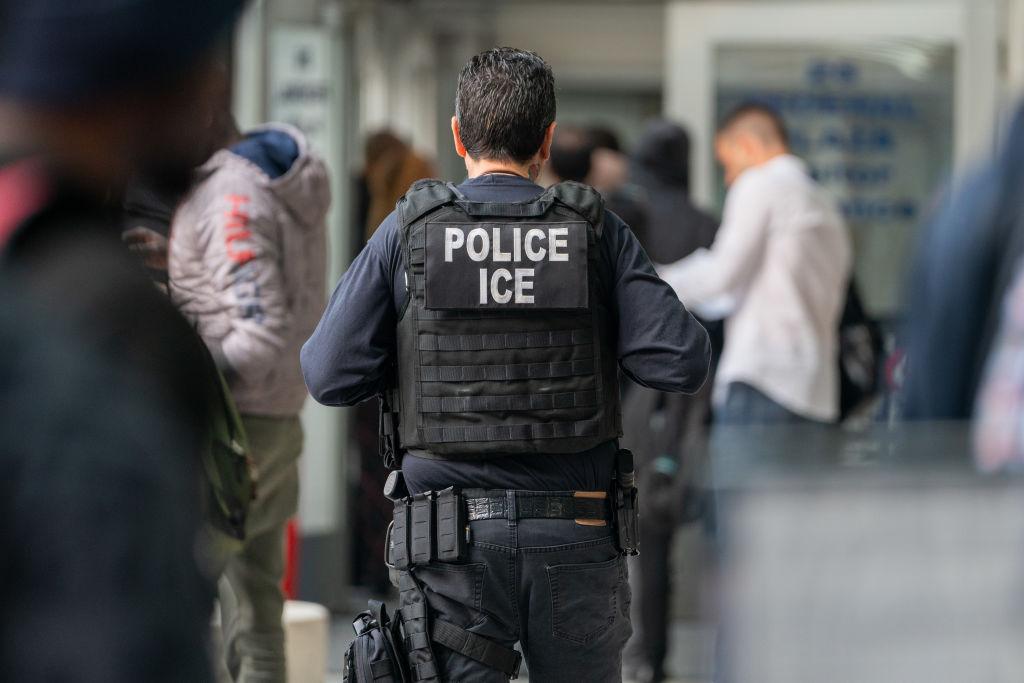Happy Tuesday! And congratulations to Scooter, the weirdest-looking dog at the 2023 Sonoma-Marin Fair. “Ugly is in the eye of the beholder,” the local news writeup read. “And the judges beheld Scooter.”
Quick Hits: Today’s Top Stories
- In his first public remarks since his forces abruptly ended their march toward Moscow Saturday, Wagner Group leader Yevgeny Prigozhin said Monday his aim was not to overthrow Russian President Vladimir Putin, but to ensure the survival of his private military company—set to be brought under Russian defense ministry control or else disbanded by July 1. Prigozhin added Belarus, where he’s reportedly being exiled, will allow Wagner to continue operations. Putin also spoke publicly about the weekend’s events on Monday, saying the “organizers”—he didn’t name Prigozhin—would be “brought to justice” while Wagner soldiers themselves were free to go to Belarus. President Joe Biden told reporters Monday that the United States and its allies had nothing to do with Wagner’s mutiny.
- As Russia continues to grapple with the aftermath of that rebellion, Ukraine has gained new ground in its counteroffensive. According to the Ukrainian Defense Ministry, the country’s forces on Monday retook control of Rivnopil, a village in southeastern Ukraine that was largely destroyed during its Russian occupation. Rivnopil is reportedly the ninth village Ukraine has recaptured since its counteroffensive campaign began this spring.
- CNN on Monday obtained an audio recording of former President Donald Trump’s July 2021 conversation with ghostwriters for a political memoir in which he allegedly shared classified material related to U.S. military plans vis-a-vis Iran. “I have a big pile of papers,” Trump says as documents can be heard rustling. “[The Pentagon] presented me this.” The audio—which is expected to play a major role in special counsel Jack Smith’s case against Trump—also includes the former president acknowledging that the material he’s discussing is “highly confidential” and that he hadn’t declassified it before leaving office.
- The Supreme Court dismissed an appeal by the state of Louisiana Monday, reinstating a lower court ruling requiring Louisiana state legislators to redraw congressional districts to create a second majority black district. The ruling follows a similar case the Supreme Court decided earlier this month that reinforced the provisions in Section 2 of the Voting Rights Act protecting the voting power of racial minorities. The high court also declined to take up a case regarding a challenge to a North Carolina charter school’s dress code, leaving in place a lower court ruling that said the dress code requiring girls to wear skirts violated federal law.
- Florida Gov. Ron DeSantis unveiled an expansive immigration policy agenda during a trip to the U.S.-Mexico border on Monday. DeSantis’ plans include ending birthright citizenship for the children of illegal immigrants born in the U.S., completing the wall along the southern border, keeping asylum seekers in Mexico while their cases are pending, and reserving the right to deploy U.S. troops to Mexico to combat drug cartels.
- John Goodenough, the Nobel Prize-winning chemist who helped create the lithium-ion battery, died Sunday at 100 years old. He was the oldest Nobel laureate in history, winning the prize at age 97, and his contributions to the rechargeable lithium-ion battery paved the way for countless devices and machines that have since become ubiquitous.
SCOTUS’ Discretion on Discretion

Supreme Court justices may be saving the juiciest cases for last—we’re on high alert for news later this morning—but that doesn’t mean there haven’t already been plenty of interesting verdicts handed down this month. On Friday, for example, an overwhelmingly united Supreme Court ruled 8-1 that officials in Texas and Louisiana don’t have standing to challenge what they consider the Biden administration’s lax immigration enforcement guidelines.
At issue was a September 2021 memo issued by Homeland Security Secretary Alejandro Mayorkas directing immigration authorities—theoretically tasked with deporting the millions of people in the United States illegally—to prioritize for removal only those undocumented immigrants who threaten national security, public safety, or border security. “The fact an individual is a removable noncitizen therefore should not alone be the basis of an enforcement action against them,” Mayorkas wrote in the guidelines. “We will use our discretion and focus our enforcement resources in a more targeted way. Justice and our country’s well-being require it.”
The Biden administration’s approach represented a break from its immediate predecessor—Donald Trump ordered federal agencies in 2017 not to “exempt classes or categories of removable aliens from potential enforcement”—but Mayorkas was not the first official to set priorities for removal of non-citizens. “Because the agency is confronted with more administrative violations than its resources can address, the agency must regularly exercise ‘prosecutorial discretion’ if it is to prioritize its efforts,” Obama-era Immigration and Customs Enforcement Director John Morton wrote in 2011.
Seeking to block DHS from implementing its directive this time around, the Republican state attorneys general of Texas and Louisiana filed suit, arguing the DHS policy contradicted the Immigration and Nationality Act, which makes clear the attorney general “shall take into custody any alien” who is deemed inadmissible or deportable under federal law, generally as a result of having committed certain crimes.
While a unanimous three-judge panel of the 6th Circuit Court of Appeals refused to invalidate the guidelines last July under a similar case brought by three other GOP-controlled states, Texas and Louisiana found a receptive audience in the federal district court in Texas. U.S. District Judge Drew Tipton—a Trump administration appointee who has repeatedly ruled against the Biden administration on immigration-related cases—blocked the policy last June on the grounds that the Biden administration overstepped its executive authority and cannot unilaterally change the law. If you visit the original DHS memo today, you’ll see a little blue sticky note referencing Tipton’s ruling: “Accordingly, until further notice, ICE will not apply or rely upon the Mayorkas Memorandum in any manner.”
In agreeing to hear the case (but blocking the policy from taking effect while litigation proceeded), the Supreme Court laid out the three central questions that needed answering: 1) whether the states have “standing,” or a legal claim to injuries, to sue the Biden administration; 2) whether the DHS memo violated federal law, and 3) whether Tipton had the authority to unilaterally block the policy from being implemented.
In oral arguments on November 29, several justices signaled their reluctance to allow states without clear injury claims to bring cases against federal policies. “Immigration policy is supposed to be the zenith of federal power, and it’s supposed to be the zenith of executive power,” Justice Elena Kagan said at the time. “And, instead, we’re creating a system where a combination of states and courts can bring immigration policy to a dead halt.”
Writing for the majority last week, Justice Brett Kavanaugh seemed to agree. “If the Court green-lighted this suit, we could anticipate complaints in future years about alleged Executive Branch under-enforcement of any similarly worded laws—whether they be drug laws, gun laws, obstruction of justice laws, or the like,” he noted, describing the states’ lawsuit as “extraordinarily” unusual. “We decline to start the Federal Judiciary down that uncharted path.”
That first central question—on whether Texas and Louisiana had standing to sue over the DHS guidelines—was the only one the court resolved on Friday, punting on the latter two. “We take no position on whether the Executive Branch here is complying with its legal obligations,” the ruling states. “We hold only that the federal courts are not the proper forum to resolve this dispute.”
Austin Kocher—an assistant professor at Syracuse University and a research fellow at American University’s Immigration Lab—doesn’t believe the decision will dramatically alter the status quo. “There’s just not a whole lot of what we refer to as interior enforcement,” Kocher tells TMD, referring to arrests and detentions of illegal immigrants already inside the country. “So I don’t know how much of a material impact this is going to have. But it at least gives the agency the latitude—which I think is an appropriate amount of latitude—to say, ‘Look, we’re going to prioritize people we consider serious offenders, and we’re not necessarily going to prioritize people who are not serious.’”
The ruling’s effect on immigration in particular may be muddled, but it could create even more room for the White House to operate. “I presume this is going to embolden the Biden administration in all sorts of areas,” says George Fishman, senior legal fellow at the Center for Immigration Studies and Trump administration DHS alum. “Not specifically the issues at hand, but in terms of, more generally, just ignoring congressional requirements and inventing programs not provided for in the Immigration and Nationality Act.”
The court’s lone dissenter—Justice Samuel Alito—made a similar argument in his scathing, 29-page dissent. “The majority’s conception of Presidential authority smacks of the powers that English monarchs claimed prior to the ‘Glorious Revolution’ of 1688,” he wrote, citing the authority to “suspend the operation of existing statutes” and “grant dispensations from compliance with statutes.”
Alito took particular issue with the court’s apparent willingness to contradict its own precedent, established in the landmark 2007 case Massachusetts v. Environmental Protection Agency. In that case the court held that Massachusetts had standing to sue the George W. Bush administration for its failure to enforce environmental regulations, because doing so directly harmed the state through the effects of global warming. “If the new rule adopted by the Court in this case is sound, these decisions and others like them were all just wasted ink,” Alito writes in his dissent. “I understand that what we have called ‘drive-by jurisdictional rulings’ are not precedents, but the Court should not use a practice of selective silence to accept or reject prominently presented standing arguments on inconsistent grounds.”
The justices’ next test on this front could come as early as today: They still need to decide who has standing to sue over the Biden administration for its mass student loan cancellation.
Worth Your Time
- Vladimir Putin’s regime has cultivated apathy among its citizens. Over the weekend, this came back to bite him, Anne Applebaum writes in a piece for The Atlantic. “In a way, the strangest aspect of Saturday’s aborted coup was the reaction of the people of Rostov-on-Don, including the city’s military leaders, to the soldiers who arrived and declared themselves to be their new rulers,” she notes. “The Wagner mercenaries showed up in the city early Saturday morning. They met no resistance. Nobody shot at them. Early in the morning, a few people came to gawk, but not many. Democratic politicians spend a lot of time thinking about how to engage people and persuade them to vote. But a certain kind of autocrat, of whom Putin is the outstanding example, seeks to convince people of the opposite: not to participate, not to care, and not to follow politics at all. But the side effect of apathy was on display yesterday as well. For if no one cares about anything, that means they don’t care about their supreme leader, his ideology, or his war.”
- Why is seemingly every political commentator fixated on 2024 hopeful Tim Scott’s race? “The news coverage of his campaign offers a peculiar and perverse window into our cultural inability to talk about Black Republicans in ways that don’t treat them as political curios (at best) or end in accusations of racial heresy (at worst),” Tyler Austin Harper argues for the Washington Post. “Politicians and political figures who don’t fit neatly within tightly calibrated models of Black political thought—which is to say, somewhere between the normie liberal center and the progressive fringe—are objects of exoticization that would have made a 19th-century anthropologist blush. What starts as mere curiosity often turns into assertions of betrayal. All too often, public criticism of Black conservatives ends up implying that there is a difference—as Nikole Hannah-Jones of the New York Times once implied in an infamous tweet—between being ‘racially Black’ and ‘politically Black.’ It should not be controversial to say that putting such straitjackets on permissible Black political sentiment is racist.”
Presented Without Comment
NPR: Harvard Professor Who Studies Dishonesty is Accused of Falsifying Data
Also Presented Without Comment
National Review: Democratic Senator Admits He Opposes Any Legal Limit on Abortion Before a Baby’s Due Date
Also Also Presented Without Comment
The Hill: Chris Christie on Trump’s Weight Insults: ‘Oh, Like He’s Some Adonis?’
Toeing the Company Line
- It’s Tuesday, which means Dispatch Live (🔒) returns tonight at 8 p.m. ET/5 p.m. PT! Declan and the team will discuss the news of the week and, of course, take plenty of viewer questions! Keep an eye out for an email later today with information on how to tune in.
- In the newsletters: The Dispatch Politics crew details the White House’s dodge on Hunter Biden and the results of the Virginia state legislative primaries, Kevin argues (🔒) the New Right is intellectually bankrupt, and Nick draws parallels (🔒) between Prigozhin’s putsch and Russia’s failures in the war with Ukraine.
- On the podcasts: Adam talks to scholar and columnist Walter Russell Mead about how the war in Ukraine might end on The Dispatch Podcast, and Sarah is joined on The Dispatch Book Club (🔒) by author Del Wilber to discuss his book on the attempted assassination of Ronald Reagan. Advisory Opinions’ schedule this week will be tethered to the release of major Supreme Court decisions.
- On the site today: Audrey B. digs into the U.S. military’s recent recruiting shortfalls and Jacob Becker reflects on the consequences of the Supreme Court’s decision on prayer in school, one year later.
Let Us Know
Does the Supreme Court’s ruling give the executive branch too wide a berth to implement immigration policy? Is Justice Alito right that the decision violates the court’s own 2007 precedent?











Please note that we at The Dispatch hold ourselves, our work, and our commenters to a higher standard than other places on the internet. We welcome comments that foster genuine debate or discussion—including comments critical of us or our work—but responses that include ad hominem attacks on fellow Dispatch members or are intended to stoke fear and anger may be moderated.
You are currently using a limited time guest pass and do not have access to commenting. Consider subscribing to join the conversation.
With your membership, you only have the ability to comment on The Morning Dispatch articles. Consider upgrading to join the conversation everywhere.